
Filter News
Area of Research
News Topics
- (-) Quantum Computing (40)
- 3-D Printing/Advanced Manufacturing (133)
- Advanced Reactors (35)
- Artificial Intelligence (107)
- Big Data (66)
- Bioenergy (94)
- Biology (105)
- Biomedical (63)
- Biotechnology (25)
- Buildings (69)
- Chemical Sciences (74)
- Clean Water (31)
- Climate Change (110)
- Composites (32)
- Computer Science (202)
- Coronavirus (46)
- Critical Materials (29)
- Cybersecurity (35)
- Decarbonization (89)
- Education (5)
- Element Discovery (1)
- Emergency (2)
- Energy Storage (112)
- Environment (206)
- Exascale Computing (48)
- Fossil Energy (6)
- Frontier (49)
- Fusion (59)
- Grid (67)
- High-Performance Computing (100)
- Hydropower (11)
- Irradiation (3)
- Isotopes (57)
- ITER (7)
- Machine Learning (55)
- Materials (151)
- Materials Science (150)
- Mathematics (10)
- Mercury (12)
- Microelectronics (4)
- Microscopy (51)
- Molten Salt (9)
- Nanotechnology (60)
- National Security (76)
- Net Zero (15)
- Neutron Science (143)
- Nuclear Energy (111)
- Partnerships (54)
- Physics (66)
- Polymers (33)
- Quantum Science (75)
- Renewable Energy (2)
- Security (26)
- Simulation (55)
- Software (1)
- Space Exploration (25)
- Statistics (4)
- Summit (63)
- Sustainable Energy (133)
- Transformational Challenge Reactor (7)
- Transportation (99)
Media Contacts

Joseph Chapman, a research scientist in quantum communications at ORNL, was given the Physical Review Applied Reviewer Excellence 2024 award for his work as a peer reviewer for the journal Physical Review Applied.
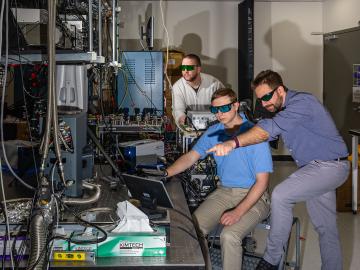
ORNL scientists are working on a project to engineer and develop a cryogenic ion trap apparatus to simulate quantum spin liquids, a key research area in materials science and neutron scattering studies.

Researchers simulated a key quantum state at one of the largest scales reported, with support from the Quantum Computing User Program, or QCUP, at ORNL.
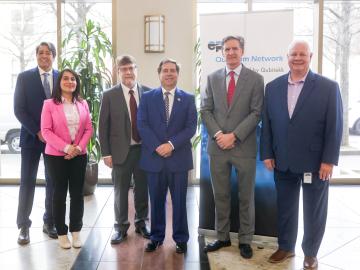
EPB, ORNL announce plans for research collaborative focused on energy resilience, quantum technology
EPB and ORNL marked 10 years of collaboration with the announcement of the new Collaborative for Energy Resilience and Quantum Science. The new joint research effort will focus on utilizing Chattanooga’s highly advanced and integrated energy and communications infrastructure to develop technologies and best practices for enhancing the resilience and security of the national power grid while accelerating the commercialization of quantum technologies.
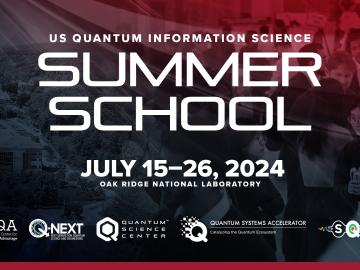
From July 15 to 26, 2024, the Department of Energy’s Oak Ridge National Laboratory will host the second U.S. Quantum Information Science, or QIS, Summer School.
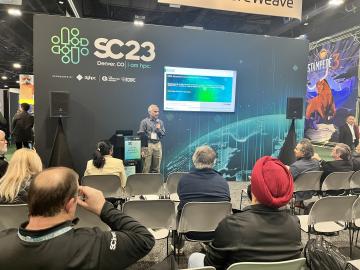
ORNL’s successes in QIS and its forward-looking strategy were recently recognized in the form of three funding awards that will help ensure the laboratory remains a leader in advancing quantum computers and networks.
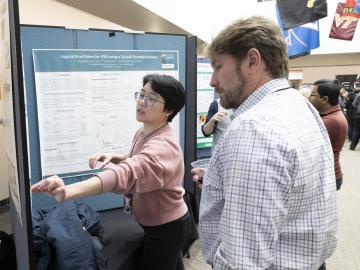
On Nov. 1, about 250 employees at Oak Ridge National Laboratory gathered in person and online for Quantum on the Quad, an event designed to collect input for a quantum roadmap currently in development. This document will guide the laboratory's efforts in quantum science and technology, including strategies for expanding its expertise to all facets of the field.
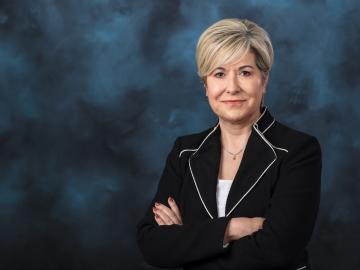
Effective Dec. 4, Gina Tourassi will assume responsibilities as associate laboratory director for the Computing and Computational Sciences Directorate at the Department of Energy’s Oak Ridge National Laboratory.
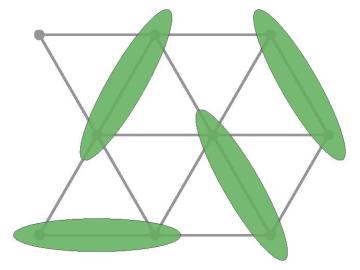
A team of researchers associated with the Quantum Science Center headquartered at the Department of Energy's Oak Ridge National Laboratory has confirmed the presence of quantum spin liquid behavior in a new material with a triangular lattice, KYbSe2.
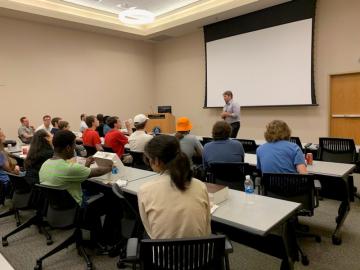
Quantum computing sits on the cutting edge of scientific discovery. Given its novelty, the next generation of researchers will contribute significantly to the advancement of the field. However, this new crop of scientists must first be cultivated.


